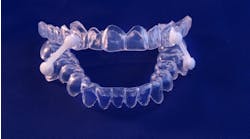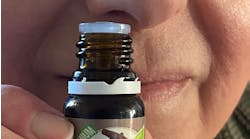Sugar consumption: Damaging more than just teeth
While sugar may seem like a substance that is harmful only to your teeth and consuming it may not be “that big of a deal,” excessive consumption can cause severe damage to both physical and mental health. It is well-known that high sugar intake can lead to cavities in the teeth by selecting for bacteria such as Streptococcus mutans and Streptococcus sorbrinus that process the sugar and produce acid.1 When the pH of the mouth drops below 5.5, dissolution of minerals in the tooth enamel starts and the caries process begins.2 Less well-known are the systemic effects of sugar and that excess consumption is one of the leading causes of rising obesity rates, cardiovascular disease, type 2 diabetes, and other chronic diseases, with addiction rates similar to narcotics. Because the addition of sugar to food substances is often unregulated, the amount of sugar intake can remain largely unknown. This article will briefly describe sugar addiction and its effects on the body organs other than the teeth.
Sugar addiction or sugar craving?
Although some authors propose that addiction to sugar should fall under a larger category of food addiction and that there is little evidence that supports neurobiological dependency,3 other studies suggest these “cravings” are similar to those of cocaine since sugar can increase energy and result in a short-term euphoric feeling.4 Sugar addiction has been shown to have withdrawal and relapse rates comparable to those associated with narcotics and other illicit drugs.5
Another difference between narcotics and sugars is that unlike narcotics, sugar can be “added” and hidden in foods, even foods considered healthy. Processed foods like protein bars, sweetened beverages like energy drinks, “healthy” cereals, juices, and yogurts can be loaded with sugars.
According to the American Heart Association, the average recommended sugar intake is 36 grams per day for men and 25 grams per day for women.6 One cup of Dannon low-fat yogurt, a food substance deemed “healthy,” has 34 grams of sugar alone. Because of these hidden sugars and a lack of nutrition education, it is estimated that the average American consumes 71.14 grams of sugar a day, accounting for up to 17% of total adult calorie intake.
The systemic result of excessive sugar consumption
- Obesity: Two-thirds of Americans are estimated to be obese or overweight, with an approximated health-care cost of associated disease ranging from $150–$220 billion a year. Low-fat diets trended in the early 2000s, but those diets replaced fat with sugar, and sugar has been labeled the number one reason why obesity rates have increased. Obesity has been linked to periodontal disease as well as numerous chronic diseases and inflammation.7 Visceral fats around end organs have been associated with organ damage and failure.
- Diabetes: 37.3 million people in the United States have diabetes, which is 11.3% of the total population. Another 96 million adults compromising 38% of the adult US population have prediabetes—of whom only 19% are aware of their prediabetes status.8 Diabetes is a risk factor for periodontal disease.9 Overconsumption of sugar can spike insulin levels and drive insulin resistance. The risk for diabetes grows approximately 1.1% for every 150 calories of sugar consumed in one day.10
- Inflammation: High sugar consumption significantly increases pro-inflammatory cytokines IL-6, IL-1β, and TNF-α. In addition, increased adipose tissue produces higher levels of TNF-α, leading to higher levels of inflammation.11 Studies have shown a causal link between chronic inflammation and a variety of diseases, including periodontal disease.12
- Gut dysbiosis: Studies have shown that diets high in sugar can trigger changes in gut microbiome favoring those associated with obese phenotypes. Because of these bacterial changes, metabolism can be affected leading to changes in energy production, food processing, and hormonal changes.13
- Depression: Diets high in sugars and processed foods can cause neurotransmitter dysregulation, which in turn increases the risk of depression. One long-term study found that men who consumed more than 67 grams of sugar per day were up to 23% more likely to develop depression than men who consumed fewer than 40 grams daily.14 Research has also found a correlation between excessive high-fructose corn syrup consumption and an increased risk for Alzheimer’s disease and dementia.15
- Premature aging: The shortening of telomeres is a natural process in aging, but a high intake of sugar can accelerate this process. One study with 5,309 adult subjects showed that regular drinking of sugar-sweetened beverages was associated with shortened telomere length and premature cellular aging. Each daily 20-ounce serving of a sugar-sweetened drink equated to 4.6 additional years of aging, independent from other factors.16
Curbing the sugar addiction/craving
Because of the many chronic diseases associated with prolonged sugar overconsumption, stopping sugar addiction and preventing sugar cravings are important lifestyle changes. Dietary changes that directly limit sugar consumption and replace processed products with whole foods or “the single-ingredient method” is the best method.17 Eating whole fruits, vegetables, high-fiber foods, and grains instead of processed snacks with added sugars will help keep blood glucose levels stable throughout the day. Avoiding high-fructose corn syrup-containing items, added sugars and dyes, and cutting out refined carbohydrates can help decrease inflammation and balance hormone levels. Additionally, mindfulness techniques can be incorporated as supportive measures. These can include walks after meals, meditation, and undistracted eating practices to slow down the speed of food consumption.
Editor’s note: This article originally appeared in Perio-Implant Advisory, a chairside resource for dentists and hygienists that focuses on periodontal- and implant-related issues. Read more articles and subscribe to the newsletter.
References
- Moynihan P, Petersen PE. Diet, nutrition and the prevention of dental diseases. Public Health Nutr. 2004;7(1A):201-226. doi:10.1079/phn2003589
- Touger-Decker R, van Loveren C. Sugars and dental caries. Am J Clin Nutr. 2003;78(4):881S-892S. doi:10.1093/ajcn/78.4.881S
- Westwater ML, Fletcher PC, Ziauddeen H. Sugar addiction: the state of the science. Eur J Nutr. 2016;55(Suppl 2):55-69. doi:10.1007/s00394-016-1229-6
- Murray K. Why is sugar addiction a problem? Addiction Center. Updated December 8, 2021. https://www.addictioncenter.com/drugs/sugar-addiction/
- Detrano J. Sugar addiction: more serious than you think. Rutgers Graduate School of Applied and Professional Psychology. Center of Alcohol & Substance Use Studies. https://alcoholstudies.rutgers.edu/sugar-addiction-more-serious-than-you-think/
- Cut out added sugars – infographic. American Heart Association. https://www.heart.org/en/healthy-living/healthy-eating/eat-smart/sugar/cut-out-added-sugars-infographic
- Ouchi N, Parker JL, Lugus JJ, Walsh K. Adipokines in inflammation and metabolic disease. Nat Rev Immunol. 2011;11(2):85-97. doi:10.1038/nri2921
- National diabetes statistics report. Centers for Disease Control and Prevention. https://www.cdc.gov/diabetes/data/statistics-report/index.html
- Polak D, Sanui T, Nishimura F, Shapira L. Diabetes as a risk factor for periodontal disease-plausible mechanisms. Periodontol 2000. 2020;83(1):46-58. doi:10.1111/prd.12298
- Basu S, Yoffe P, Hills N, Lustig RH. The relationship of sugar to population-level diabetes prevalence: an econometric analysis of repeated cross-sectional data. PLoS One. 2013;8(2):e57873. doi:10.1371/journal.pone.0057873
- Faruque S, Tong J, Lacmanovic V, Agbonghae C, Minaya DM, Czaja K. The dose makes the poison: sugar and obesity in the United States – a review. Pol J Food Nutr Sci. 2019;69(3):219-233. doi:10.31883/pjfns/110735
- Page RC, Engel LD, Narayanan AS, Clagett JA. Chronic inflammatory gingival and periodontal disease. JAMA. 1978;240(6):545-550.
- Duca FA, Sakar Y, Lepage P, et al. Replication of obesity and associated signaling pathways through transfer of microbiota from obese-prone rats. Diabetes. 2014;63(5):1624-1636. doi:10.2337/db13-1526
- Knüppel A, Shipley MJ, Llewellyn CH, Brunner EJ. Sugar intake from sweet food and beverages, common mental disorder and depression: prospective findings from the Whitehall II study. Sci Rep. 2017;7(1):6287. doi:10.1038/s41598-017-05649-7
- Stephan BCM, Wells JCK, Brayne C, Albanese E, Siervo M. Increased fructose intake as a risk factor for dementia. J Gerontol A Biol Sci Med Sci. 2010;65(8):809-814. doi:10.1093/gerona/glq079
- Leung CW, Laraia BA, Needham BL, et al. Soda and cell aging: associations between sugar-sweetened beverage consumption and leukocyte telomere length in healthy adults from the National Health and Nutrition Examination Surveys. Am J Public Health. 2014;104(12):2425-2431. doi:10.2105/AJPH.2014.302151
- Monteiro CA, Levy RB, Claro RM, de Castro IRR, Cannon G. Increasing consumption of ultra-processed foods and likely impact on human health: evidence from Brazil. Public Health Nutr. 2011;14(1):5-13. doi:10.1017/S1368980010003241








